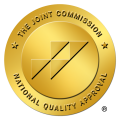Life Coaching: The Resource Every Treatment Center Needs
Discover the benefits of life coaching for substance abuse disorders and overall growth and productivity.
Article Contents
What Does a Life Coach Do?
According to The International Coach Federation (ICF), 80% of clients who work with life coaches report improved self-confidence, and 73% report improved relationships.1 Life coaches don’t just give pep talks—they motivate people to take actionable steps toward creating their ideal lives.
Whether someone is looking to be an online life coach or a traditional, in-person life coach, they must undertake hours of life coach training through a certification program before they begin offering their services. Once a life coach is certified, they work with clients to provide guidance and support for real-world problems.
Life Coaching Training
The ICF created three standards for life coaches:2- Associate Certified Coach, requiring 60 hours of life coach training
- Professional Certified Coach, requiring 125 hours of training
- Master Certified coach, requiring 220 hours of training
According to the ICF, life coaches partner with clients in a creative and thought-provoking process that allows them to maximize their productivity and potential. Life coaching is often associated with professional development, but it can be beneficial for anyone interested in self-discovery or self-growth, as well as those who need help with goal setting, managing changes, and life transitions.
How Life Coaching Differs from Therapy or Consultation

Life coaches are not medical professionals, and it is common for life coaches to refer clients to psychotherapists if the client presents with significant psychological distress. Life coaches are responsible for discovering and clarifying the goals the client wants to achieve, but they are not responsible for treating mental illness. Life coaches must understand the difference between their services and psychotherapy to maintain proper boundaries and ensure they are in regulation with the laws.
Life Coaching vs. Therapy
Therapy can be a useful tool for people trying to understand the “whys” in their lives—why they struggle in relationships, why they have certain fears, etc. Therapists typically focus on a person’s past to help them understand their current dilemmas. A certified life coach focuses on the “hows” in a person’s life. Life coaches work with clients to craft concrete plans for the present and future, instead of looking into a person’s past.
Life Coaching vs. Consultation
Some people may choose to look to a consultant to get help with life’s problems. For example, someone looking to improve their business may consult a professional who has experience in business, and they may find some practical advice from that consultant.
While the consultant can tell clients what has worked for them, a certified life coach has the discernment to point out the steps a client needs to take to improve their business. A life coach can recognize an individual’s obstacles and help develop personalized strategies for overcoming those obstacles in all areas of life. A consultant may focus on just one problem area.
Find a Life Coach to Suit Individual Needs
Life coaching guides clients through any problems the client may be facing, from financial issues to relationship troubles. Life coaches do not diagnose clients and are not qualified to offer medical advice. Instead, life coaches act as a mentor for those looking to be more productive, confident, or balanced in their daily lives. Some common areas a life coach can help with include:
- Setting up goals
- Life planning
- Overcoming fears
- Financial security and freedom
- Balance of work and personal life
- Identifying core values and passions
Life Coaching and Addiction
People dealing with substance use disorder (SUD) may want to find a life coach to help them set goals and reduce harm. Mental illness and addiction often go hand in hand.3 People facing mental illness and addiction have physical repercussions of a substance use disorder, like increased risk of stroke and heart or lung disease. These individuals can also experience anxiety, a lack of motivation, underlying fears, and a lack of direction in life. Life coaching aids in those areas and acts as a supplemental resource for those struggling with substance abuse disorder.
Life coaches can help those who have substance abuse disorder by:
- Offering guidance and mentorship
- Educating the client and the client’s family
- Helping with harm reduction and detox
- Acting as a role model for the client
Why Life Coaches Belong at Treatment Facilities
Treatment facilities would benefit from providing patients with an on-staff life coach or an online life coach in addition to therapists and other medical professionals. Life coaches have unique skills and approaches that increase the chances of people with substance use disorders falling into old habits.
Some people who are resistant to psychotherapy may be more interested in life coaching services, as life coaches do not take a medical approach or diagnose clients with anything. Instead, they work alongside the client to create a plan of action.4
Helpful Tips for a Sober Lifestyle
Those who are unable or unwilling to see a life coach in person may be more inclined to chat with an online life coach, who provides the same guidance and mentorship as an in-person coach. However, those uninterested in life coaching completely have many other options to maintain sobriety.
The people one surrounds themselves with can have a huge impact on recovery.5 Individuals with substance use disorder should nurture healthy relationships and avoid those who encourage problematic behavior. Peer support groups can help meet like-minded people on their journey to recovery and can act as a great source of encouragement.
Finding time to invest in oneself on the road to sobriety can also be incredibly healing. Spending time exercising and nourishing the body with healthy foods can aid in positive feelings towards oneself and help individuals feel happy and strong. Investing time in a new hobby can also ward off negative emotions and aid in maintaining a sober lifestyle.
Resources
https://coachfederation.org/credentials-and-standards/professional-development
https://www.drugabuse.gov/publications/drugs-brains-behavior-science-addiction/addiction-health
https://www.camft.org/Resources/Legal-Articles/Chronological-Article-List/coaching-vs-therapy
https://sscouncil.org/2019/12/8-tips-for-staying-clean-and-sober-sobriety-rocks/




